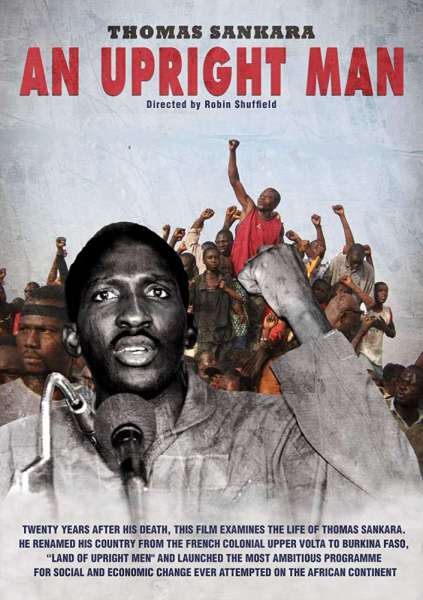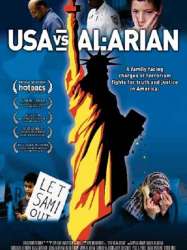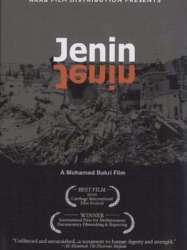Thomas Sankara: The Upright Man is a french film of genre Documentary
Thomas Sankara: The Upright Man (2006)
Thomas Sankara, l'homme intègre

If you like this film, let us know!
- Infos
- Casting
- Technical infos
- Photos
- Videos
- Film quotes
- Characters
- Music
- Awards
Length 52minutes
OriginFrance
Genres Documentary
Themes Films set in Africa, Politique, Documentary films about historical events, Documentaire sur une personnalité, Documentary films about politics, Political films
Rating74%










Thomas Sankara: The Upright Man (French:Thomas Sankara, l'homme intègre) is a 2006 documentary film about Thomas Sankara, former president of Burkina Faso. Sankara was known as "the African Che", and became famous in Africa due to his innovative ideas, his devastating humour, his spirit and his altruism. With a gun in one hand and Karl Marx's works in the other, Sankara became president at the age of 34 and served from 1983 to 1987. He immediately set out to shake the foundations of the country that he renamed from the French colonial Upper Volta to Burkina Faso, "Land of Upright Men." More than a classic biography, this film sheds light on the impact that this man and his politic made on Burkina Faso and Africa in general.
^ Delafin, Antoinette (15 October 2007). "Thomas Sankara crève l'écran". Radio France Internationale (in French). Retrieved 15 March 2012.
^ "Thomas Sankara: The Upright Man". California Newsreel. Retrieved 15 March 2012.
Synopsis
Ce documentaire retrace les quatre années de pouvoir de Thomas Sankara, président du Burkina Faso de 1983 à 1987. Chef d’État surprenant, il est surnommé « le Che africain » et connu de tous en Afrique pour ses idées novatrices, son franc-parler teinté d’humour ravageur, sa fougue et son altruisme. Avec une arme dans une main et les œuvres de Karl Marx dans l’autre, Sankara devint président à l’âge de 34 ans. Il bouscula immédiatement les fondations du pays au nom colonial français, Haute-Volta, qu’il renomma Burkina Faso, « Terre des hommes intègres ». Ce film rend compte de l’impact de cet homme et de sa politique sur les Burkinabés et sur l’Afrique en général.Comments
Leave comment :
Suggestions of similar film to Thomas Sankara: The Upright Man
There are 8961 with the same cinematographic genres, 11021 films with the same themes (including 2 films with the same 6 themes than Thomas Sankara: The Upright Man), to have finally 70 suggestions of similar films.If you liked Thomas Sankara: The Upright Man, you will probably like those similar films :

Persona Non Grata (2003)
, 1h7Directed by Oliver Stone
Origin USA
Genres Documentary
Themes Films set in Africa, Politique, Films about religion, Documentary films about law, Documentary films about war, Documentary films about historical events, Documentaire sur une personnalité, Documentary films about politics, Documentary films about religion, Political films, Films about Jews and Judaism
Actors Oliver Stone
Rating63%





Film documentaire de 2003 produit par Oliver Stone pour la série HBO America Undercover sur le conflit en Palestine occupée. Il s' entretiens avec Ehud Barak et Benjamin Netanyahu, anciens Premiers ministres d'Israël, Yasser Arafat, défunt président de l'Autorité nationale palestinienne, et divers militants palestiniens qui résistent à l'oppression du régime sioniste.
 , 1h30
, 1h30Origin USA
Genres Documentary
Themes Films set in Africa, Politique, Films about religion, Documentary films about law, Documentary films about war, Documentary films about historical events, Documentaire sur une personnalité, Documentary films about politics, Documentary films about religion, Political films, Films about Jews and Judaism
Rating80%






USA vs. Al-Arian (2007)
, 1h42Genres Documentary
Themes Films set in Africa, Films about religion, Films about terrorism, Documentary films about law, Documentary films about war, Documentary films about historical events, Documentaire sur une personnalité, Documentary films about politics, Documentary films about religion, Documentary films about terrorism, Political films, Films about Jews and Judaism
Rating70%






Jenin, Jenin (2003)
, 54minutesDirected by Mohammad Bakri
Genres Documentary
Themes Films set in Africa, Films about religion, Documentary films about law, Documentary films about war, Documentary films about historical events, Documentaire sur une personnalité, Documentary films about politics, Documentary films about religion, Political films, Films about Jews and Judaism
Rating73%





Jenin, Jenin est un documentaire sur ce qu'il se serait passé lors de la bataille de Jenine, dans le cadre de l'opération Rempart, dans le village de Jénine en territoire palestinien, impliquant Tsahal (l'armée israélienne) en 2002 (en réaction à une série d'attentats dont celui du 27 mars 2002 à l'hôtel Park de Netanya), où le cinéaste laisse la parole aux habitants de la ville.

L'Afrique en morceaux (2000)
, 1h44Origin France
Genres Documentary
Themes Films set in Africa, Films about racism, Documentary films about racism, Documentary films about law, Documentary films about war, Documentary films about historical events, Documentaire sur une personnalité, Documentary films about politics, Political films
April, 1994. Genocide in Rwanda. 800,000 dead. A catastrophe that upset the balance in the entire region. The Great Lakes region of Africa ended the year with a bloodbath. This documentary shows the intrigues, the dramatic effects, the treasons, the vengeances that prevailed over those years and whose only goal was to maintain or increase each faction’s area of influence. In just ten years, the population saw all their hopes vanish: The dream of an Africa in control of its own destiny, alimentary self-sufficiency, the end of interethnic conflicts.

Umurage (2002)
, 52minutesOrigin Espagne
Genres Documentary
Themes Films set in Africa, Films about racism, Documentary films about racism, Documentary films about law, Documentary films about war, Documentary films about historical events, Documentaire sur une personnalité, Documentary films about politics, Political films
In Rwanda, a hundred members of the Ukuri Kuganze Association, made up in its majority by survivors of the genocide, and a few of their executioners, freed after having confessed and asked for forgiveness in 2003, meet at a reinsertion center. These executioners are going home, in most cases to the same places where they carried out their crimes, and will have to "face" their victims and ask their forgiveness. In 1994, over a space of just one hundred days, almost a million people were murdered, that makes 10,000 dead per day.
 , 1h35
, 1h35Genres Documentary
Themes Films set in Africa, Films about films, Documentary films about business, Documentary films about the film industry, Documentary films about law, Documentary films about war, Documentary films about historical events, Documentaire sur une personnalité, Documentary films about politics, Political films, Documentary films about films

Rwanda pour mémoire (2003)
, 1h8Directed by Samba Félix Ndiaye
Origin France
Genres Documentary
Themes Films set in Africa, Films about writers, Films about racism, Documentary films about racism, Documentary films about law, Documentary films about war, Documentary films about historical events, Documentaire sur une personnalité, Documentary films about politics, Political films
In 1994, between April and July, the massacre of Tutsis and moderate Hutus left one million dead. Instigated by Fest’Africa, a dozen African authors met four years after the events as writers in residence at Kigali, to try to break the silence of African intellectuals on this genocide.

My Neighbor, My Killer (2009)
, 1h20Directed by Anne Aghion
Origin France
Genres Documentary
Themes Films set in Africa, Films about racism, Documentary films about racism, Documentary films about law, Documentary films about war, Documentary films about historical events, Documentaire sur une personnalité, Documentary films about politics, Political films
Rating75%





 , 1h34
, 1h34Origin USA
Genres Documentary
Themes Films set in Africa, Films about racism, Documentary films about racism, Documentary films about law, Documentary films about war, Documentary films about historical events, Documentaire sur une personnalité, Documentary films about politics, Political films
Actors Helen Mirren
Rating75%





 Connection
Connection